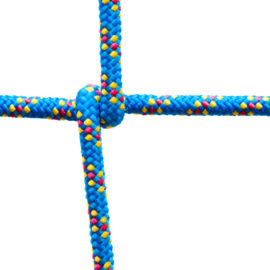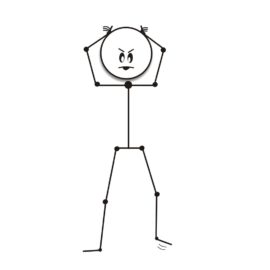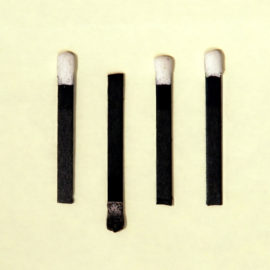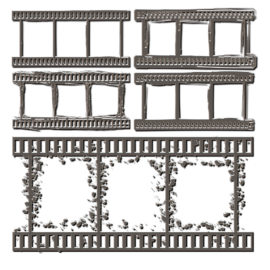There’s an emptiness that many of us feel every day. Sometimes we feel it when we’re away from someone. Sometimes we feel it when we’re surrounded by people. It isn’t depression, per se. We have all experienced it. Unless you’re schizoid, of course. Loneliness is a want. When we want, we create a gap between what we have, and what we don’t. That gap hurts. Commonly we try to distract ourselves so we don’t have to pay attention to that pain. We don’t want to feel it. We have this deep fear it will consume us. It is almost as
Resetting the Bar

I’m not a fan of competition. It brings out the worst in people, while trying to bring out the best. So of course I have difficulty understanding athletes using steroids or doping just to win a contest. These drugs have possible health consequences after all. For the athlete, I’m sure they believe it’s about achievement and maximized potential, but it’s driven by trying to be better than the other guy. The bar is set by another person. With that drive they are willing to do “whatever it takes.” Train more. Work harder. We as spectators encourage it and set up
On Balance in Relationships.

This isn’t just about balance. Or how to stay connected. Though it serves all of that. I touched on this just a little bit in my post about burnout, but I want to get into Balance in Relationships. We’re asked to care. We’re asked to do something. We’re asked to invest time and energy. This is usually about a person. Sometimes it could be a project. John was a military vet. He didn’t have to be. He could have been my childhood friend, or a guy I made friends with in a coffee shop. In this case I met him
Not a Lab Rat

Minnie was forty years old, and came to see me in my office to discuss being depressed. She had felt depressed off and on for many years, but had rarely told anyone about it. It was like dragging a weight around. She could still get things done in her, just not quite as well as she’d like. At one point she had told her family physician about this, and she was offered an antidepressant, lexapro. She took it for a few days, didn’t like how it made her feel, and stopped it. Her physician told her they could try something
How to Not Burn Out

“I just can’t do it anymore.” People burnout everywhere, in every field. They burn out professionally. They burn out in taking care of others. I live in Los Angeles and I can understand how just driving a car can burn someone out in this level of traffic. No one plans to burn out. Maybe they do have a little awareness that they’re going down that road, though. We have a level of control over where we place our attention, as well as our effort. If you’re worried you’re burning out, consider preventing it. There’s two parts, I believe, to preventing
In Brief for Those New to Therapy

If you ask ten different therapists what it is they do, you’ll get twenty answers. A therapist talks. A therapist listens. Using the term “therapy” implies only one thing, so for those who don’t know what therapy is, it’s hard to get a grasp on it. It’s even harder to understand that there’s many types of therapy. So let me begin with a comparison to religion. Religion is similar to therapy, in that they both have belief systems. Therapy is usually based more on research and evidence, though, rather than faith. Trying to pretend that there is one “religion” doesn’t
Psychotic vs. Psychopathic

They aren’t the same. Going back to at least Hitchcock (one of my faves), who brought the muddy term “psycho” into the public psyche, conflated the definitions as if all are violent, and all “crazy” is crazy. I’m sure there are briefer answers out there for those wondering what’s the difference between psychotic and psychopathic. And even though SRSLY made it into the OED because of its widespread use, lay inaccurate uses of the term psychotic will likely not. Briefly in discussing how we got here, the words are interchanged because they sound alike, and are used commonly to describe
Portraying Mental Illness in Story

Mental illness as a term gets thrown around a lot. It’s used by politicians as a scapegoat for problems or a target for funding. It’s sought by individuals to find meaning to their experience, or sometimes a justification for their difficulties. It’s a thing, talked about like any other disease. And yet the term is a lumping of many conditions under a single term, as if all mental illnesses are the same. They are not, but we talk about them that way and “let the experts sort it out.” I get that. At the same time it maintains the mystique
Hitting Rock Bottom

I’ve been thinking on this a lot lately, as the issue has arisen in various clinical situations. We do many things as caregivers (clinicians, providers, physicians, friends and family members) in an effort to help another person. Sometime it seems that if only this person could get a little help, they’d do so much better. And that is absolutely true, some of the time. On the other hand I’m meeting many people who actively sabotage their own improvement. Maybe they do this by burning bridges with family or friends. Maybe they do this via drugs or alcohol. As this happens
10 Life Lessons from a Psychiatrist

I run into the same issues everywhere, from patients, co-workers, and friends. People are stuck, and not sure how to “un-stuck” themselves. I’ve noticed some basic rules on how to live a more fulfilled life, to make life easier, and make you more effective. Consider them like guideposts if you feel off track. Some may be obvious. Others, maybe not so much. It’s not about knowing them. It’s about where you put your attention and effort. 1. Be Polite I’m not suggesting to be fake or disingenuous. Instead find the way to being kind to others. And if kindness can’t be

